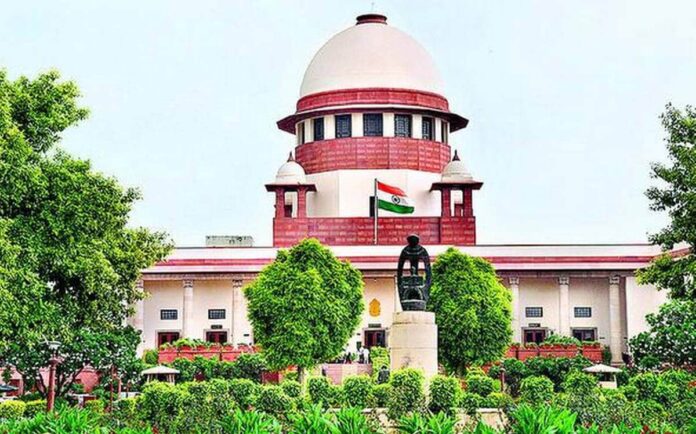Surrounded by the Maharashtra Political Crisis, the Governor ordered a floor test against the Maha Vikas Aghadi government. The Supreme Court has decided to hear the petition filed by Shiv Sena Chief Whip Sunil Prabhu on an urgent basis against the Governor’s order to direct the floor test on June 30.
As per the previous cases dealt with in the Supreme Court, it has supported the decision of the Governor to conduct floor tests.
Let’s highlight the previous Supreme Court’s judgements on the floor test:
Madhya Pradesh Government Political Crisis (2020)
The facts of the case are such that the election for the legislative assembly was held in the State of Madhya Pradesh and the INC was having the support of 121 members, the resignation of 22 sitting MLAs of the Indian National Congress party had been submitted from the State legislative assembly where the governor had directed the chief minister to conduct a floor test. It eventually led to the falling of the Kamal Nath Government and the subsequent formation of the Shivraj Singh Chouhan government in Madhya Pradesh.
D Y Chandrachud said, “Whether or not to remain present is for the individual Members to decide and they would necessarily be accountable for the decisions which they take both to their political party and to their constituents.”
In this case, the Supreme Court ordered the floor test to be conducted in a peaceful manner, ensuring that no breach of law and order take place and affirmed that no hindrance to any of the MLAs in taking recourse and liberties as a citizen while moving them back to Madhya Pradesh
Karnataka Assembly Case (2018)
The Supreme Court upheld the disqualification of 17 MLAs of Congress and Janata Dal legislators by then Karnataka Assembly Speaker K.R. Ramesh Kumar under the Tenth Schedule (anti-defection law) but held that their ouster is no bar from contesting polls.
Justice N.V. Ramana said, “Neither under the Constitution nor under the statutory scheme it is contemplated that disqualification under the Tenth Schedule would operate as a bar for contesting re-elections.”
The judgment was given as the Speakers/Chairmen hold an important position in the scheme of parliamentary democracy and are guardians of the rights and privileges of the House. They are expected to take far-reaching decisions in the Parliamentary democracy. Also, the Supreme Court directed the appointment of a Protem Speaker for the purpose of conducting the floor test. The procedure was enumerated by the Court in the Karnataka assembly case. The Supreme Court upheld the decision of the former Assembly Speaker to disqualify the Karnataka MLAs. However, the Speaker’s decision to bar the MLAs from contesting elections till 2023 was quashed by the Supreme Court.
Maharashtra Political Crisis (2019)
The facts state that there existed a pre-poll alliance between the Bharatiya Janata Party and the Shiv Sena who contested the Maharashtra Legislative Assembly elections. When the results were declared no single party had the requisite amounts of votes to form a majority. Governor called upon the BJP to form the Government, the largest party with 105 seats but it denied forming the government as their alliance with Shiv Sena.
It was contended that the Shiv Sena was trying to form a coalition government with the Indian National Congress but the next day President’s rule was revoked. The Governor invited the Bharatiya Janata Party to form a Government and administered their oath. Aggrieved by this a Writ petition has been filed by Shiv Sena seeking the Court to declare that the Government formed by the Devendra Fadnavis as unconstitutional, arbitrary, and illegal and order the Governor to invite the alliance of Shiv Sena and Indian National Congress to form the government under the leadership of Uddhav Thackeray.
They also prayed to the Court for passing interim orders to issue directions for conducting a special session for administering oath to MLAs immediately followed by holding a floor test and prayed for the appointment of a pro-tem speaker to preside over the floor test.
The court emphasized the requirement for imbibing Constitutional mortality by curtailing undemocratic and illegal practices in the political arena. It stated that if the floor test is delayed there is a possibility of horse-trading and it becomes necessary for the court to act so as to protect the democratic values. The confidence of the people can be indicated by the confidence shown by the way of a floor test. It may be understood that if a Chief Minister refuses to prove his majority within the shortest possible time then it can be interpreted as prima facie proof that he no longer enjoys the confidence of the legislature.
SR Bommai Case (1994)
In this case, the Chief Minister fails to comply with the order to take a vote of confidence, and the Governor was duty-bound to take a step to form an alternative ministry. SR Bommai was the Karnataka Chief Minister and led a Janata Dal government, which was dismissed when President’s Rule Article 356 was imposed in Karnataka. S.R Bommai’s case gives one of the landmark judgments of the supreme court regarding the basic structure doctrine by misuse of article 356. Bommai went to the Supreme Court against the governor’s decision to recommend the president’s rule.
The governors sent a report to the president stating there is a defection in the ruling party. He further stated that in view of the withdrawal of the support by the state legislature the chief minister Bommai. SR Bommai Case, it has been recognized by the Supreme Court that the Governor, being the head of the executive is entrusted with the authority to ensure that the elected government continues to possess the confidence of the Legislative Assembly and that accountability should not be compromised.






